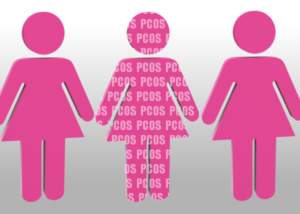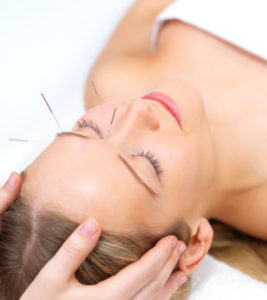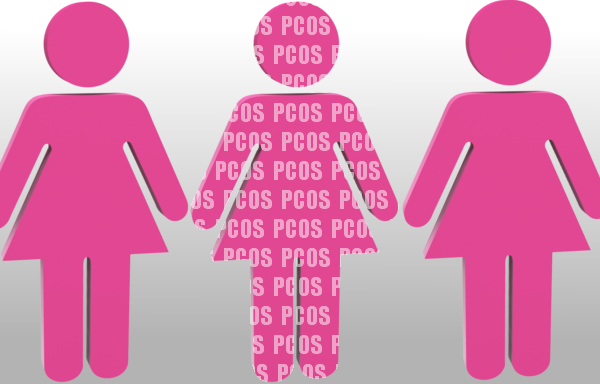By Fiona McCulloch, ND
With a prevalence as high as 20% of women of reproductive age (2), irregular menstruation and difficulty conceiving frustrate a vast number of women with Polycystic ovarian syndrome (PCOS). The most commonly recommended treatments include lifestyle modifications aimed at weight loss or improving insulin sensitivity, and/or drug therapy. Acupuncture has also shown promise as a treatment for menstrual irregularity and infertility in PCOS, either as a stand-alone or adjunctive therapy (2). In fact, to date there have been multiple high quality research publications, which begin to illustrate a mechanism for acupuncture’s beneficial effect in this highly complex syndrome (1, 2, 3, 4, 6).
Problems PCOS and not Ovulating
One of the hallmarks of PCOS is menstrual irregularity, which is found in up to 75% of PCOS women (5). In fact, PCOS is the leading cause of anovulatory infertility (7), or more correctly termed, subfertility.
Failure to ovulate is the result of local changes in the ovaries as well as disruptions in hormone levels released from the brain, pancreas and adrenal glands. At the level of the ovary, the main changes include an increased proportion of early antral follicles (7) and arrest of immature follicles prior to ovulation. This creates the classic “polycystic ovary” appearance on ultrasound.
In the brain, changes in the pulsatile release of gonadotropin-releasing hormone (GnRH) cause higher than normal levels of luteinizing hormone (LH) to be released into circulation. Alterations in the ratio of LH to FSH (follicle stimulating hormone) impede folliculogenesis and promote androgen production.
Elevated androgens are central to the hormonal dysregulation of PCOS. In addition to disrupting follicle development and ovulation, elevated androgens are often to blame for other common features of PCOS, including acne, hair loss or facial hair growth. Insulin resistance, which is demonstrated in many PCOS patients, significantly perpetuates these same issues by increasing testosterone levels and further impeding follicle growth. For more on how acupuncture can benefit insulin resistance and weight loss in PCOS, see here http://www.whitelotusclinic.ca/blog/dr-erica-nd/acupuncture-pcos-metformin-alternative/. Understanding the pathophysiology of PCOS allows us to explore viable treatment options to address the underlying dysfunction.
Acupuncture and ovulation in women with PCOS

Acupuncture, an ancient art and science of Traditional Chinese Medicine, has gained increasing popularity in reproductive medicine during recent years. The insertion of acupuncture needles creates local effects, including increasing circulation and glucose uptake within cells (2). Acupuncture also promotes the release of specific neuropeptides, which can alter sympathetic output to select target organs, such as the ovary, via feedback through the central nervous system (2). In response to acupuncture, β-endorphin modulates the release of hormones such as GnRH and CRH (corticotropin-releasing hormone) and hence can alter reproductive, adrenal and pancreatic function (2). The effects of acupuncture can be amplified by passing a low frequency electrical current between two needles, which is a procedure known as electro-acupuncture. Low-frequency electro-acupuncture can cause muscle contractions and is believed to approximate the biological effects of exercise (2).
Improving ovulation for women with PCOS with acupuncture
Acupuncture, both with manual needle stimulation as well as low-frequency electrical stimulation, has been shown to improve ovulation, hormone disruption and hyperactivity of the nervous system in PCOS. To date there have been several human trials documenting these effects (1, 3, 4, 6). The first randomized control trial to demonstrate an improvement in ovarian function in PCOS women noted that acupuncture treatments over 4 months produced superior effects on menstrual cycle frequency and testosterone levels when compared to exercise or control groups (3). Increased menstrual frequency was noted after the 14th acupuncture session, and remained increased even 4 months after the treatment ended (3).
In a later study, both lean and overweight women with PCOS received electro-acupuncture twice per week for 10-13 weeks (1). Specific acupuncture points were chosen in the legs and abdomen based on their ability to cause feedback to the ovaries via the nervous system. The results in the acupuncture group were compared to a control group, who met with a therapist over the same period of time. The acupuncture group was found to have a higher ovulation frequency compared to the control group (1). This effect was even more impressive than that found in previous clinical trials which had included fewer acupuncture treatments (3, 4, 6), indicating a dose-response effect of acupuncture. In addition to improved ovulation frequency, an improvement in ovarian morphology and reduction in immature follicles was also observed. Furthermore, favorable hormone changes were documented over the duration of the study in the acupuncture group, including reductions in estrogen, testosterone, free testosterone, DHEAs and inhibin B. Taken together, these finding suggest that acupuncture may improve follicle development and ovulation rates in PCOS, along with imparting beneficial reductions in circulating sex hormone levels (1).
In the complex syndrome known as PCOS, a coordinated interplay of nervous system dysregulation and hormonal shifts inhibit the development and release of a mature follicle – resulting in irregular menses and difficulty conceiving. Evidence in the literature is accumulating for the use of acupuncture as a stand-alone or adjunctive treatment option for the reproductive and endocrine disturbances found in PCOS women.
Schedule an acupuncture consultation/treatment today
References
- Johansson J, Redman L, Veldhuis PP, Sazonova A, Labrie F, Holm G, Johannsson G, Stener-Victorin E. Acupuncture for ovulation induction in polycystic ovary syndrome: a randomized controlled trial. American Journal of Physiology – Endocrinology and Metabolism 2013; 304 (9): E934-E943
- Johansson J & Stener-Victorin E. Polycystic Ovary Syndrome: Effect and Mechanisms of Acupuncture for Ovulation Induction. Evidence-Based Complementary and Alternative Medicine 2013; 762615
- Jedel E, Labrie F, Oden A, Holm G, Nilsson L, Janson PO, Lind AK, Ohlsson C, Stener-Victorin E. Impact of electro-acupuncture and physical exercise on hyperandrogenism and oligo/amenorrhea in women with polycystic ovary syndrome: a randomized controlled trial. Am J Physiol Endocrinol Metab 2011;300: E37–E45.
- Pastore LM, Williams CD, Jenkins J, Patrie JT. True and sham acupuncture produced similar frequency of ovulation and improved LH to FSH ratios in women with Polycystic Ovary Syndrome. J Clin Endocrinol Metab 2011; 96: 3143–3150.
- Azziz R, Carmina E, Dewailly D et al. Position statement: criteria for defining polycystic ovary syndrome as a predominantly hyperandrogenic syndrome: an androgen excess society guideline. Journal of Clinical Endocrinology and Metabolism 2006; 91 (11): 4237-4245.
- Stener-Victorin E, Waldenström U, Tägnfors U, Lundeberg T, Lindstedt G, Janson PO. Effects of electro-acupuncture on anovulation in women with polycystic ovary syndrome. Acta Obstetricia et Gynecologica Scandinavica 2000; 79 (3):180–188.
- Franks S, Stark J, Hardy K. Follicle dynamics and anovulation in polycystic ovary syndrome. Hum Reprod Update 2008; 14(4):367-78.



Recent Comments